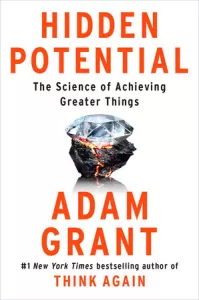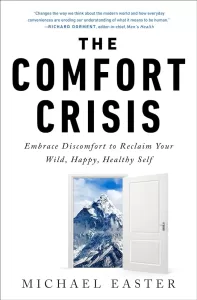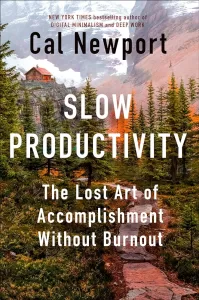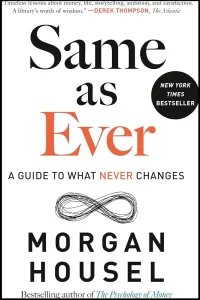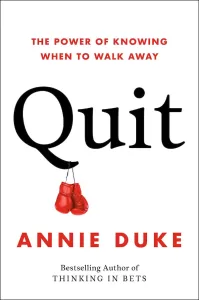Book Review: “Hidden Potential”
Book: Hidden Potential by Adam Grant
Reviewer: Bobby Powers
My Thoughts: 9 of 10
Adam Grant is one of my intellectual heroes. He wrote two of my favorite books of the past decade: Think Again & Give and Take. In this new book, he explores the science of success and explains what readers can do to both (A) improve their own performance and (B) help raise up those around them. Along the way, he explores the uneven playing field created by the dual pillars of privilege and injustice. Another gem from Adam Grant.
What I Learned from the Book
People put way too much emphasis on natural talent. It drives me nuts when I hear people get praised for traits they were born with (looks, height, IQ, etc.) because those traits matter so much less than a person's internal drive and work ethic. Grant shows that several character skills like proactivity, discipline, and determination can help you get further than innate skills. But to foster those skills, we need to become more comfortable with discomfort, mistakes, and failure.
"I care about unlocking hidden potential because I've lived it. My most meaningful accomplishments have come in areas where I started with serious shortages of talent. Thanks to stellar coaches, I went from being the worst diver in my school to ranking among the best in the country—and from bombing in small lectures to a standing ovation on the TED stage. If I had judged my potential by my early failures, I would have given up." -Adam Grant
Selected Quotes & Ideas from the Book
Society Focuses Too Much on Innate Ability
- "What look like differences in natural ability are often differences in opportunity and motivation."
- "When we assess potential, we make the cardinal error of focusing on starting points—the abilities that are immediately visible. In a world obsessed with innate talent, we assume the people with the most promise are the ones who stand out right away. But high achievers vary dramatically in their initial aptitudes. If we judge people only by what they can do on day one, their potential remains hidden."
- "For every Mozart who makes a big splash early, there are multiple Bachs who ascend slowly and bloom late. They're not born with invisible superpowers; most of their gifts are homegrown or homemade. People who make major strides are rarely freaks of nature. They're usually freaks of nurture."
- "The true measure of your potential is not the height of the peak you've reached, but how far you've climbed to get there."
- "When we confuse past performance with future potential, we miss out on people whose achievements have involved overcoming major obstacles. We need to consider how steep their slope was, how far they've climbed, and how they've grown along the way."
Character Drives Success
- "I now see character less as a matter of will, and more as a set of skills. Character is more than just having principles. It's a learned capacity to live by your principles."
- "Character skills do more than help you perform at your peak—they propel you to higher peaks. As the Nobel laureate economist James Heckman concluded in a review of the research, character skills 'predict and produce success in life.' But they don't grow in a vacuum. You need the opportunity and motivation to nurture them."
- Examples of "character skills": Proactivity, discipline, and determination
- "If personality is how you respond on a typical day, character is how you show up on a hard day."
- "Personality is not your destiny—it's your tendency. Character skills enable you to transcend that tendency to be true to your principles. It's not about the traits you have—it's what you decide to do with them."
Lean into Discomfort
- "Becoming a creature of discomfort can unlock hidden potential in many different types of learning. Summoning the nerve to face discomfort is a character skill—an especially important form of determination."
- "If you're comfortable, you're doin' it wrong." -Ted Lasso
- "When discomfort is a signal of progress, you don't want to run away from it. You want to keep stumbling toward it to continue growing."
- "Comfort in learning is a paradox. You can't become truly comfortable with a skill until you've practiced it enough to master it. But practicing it before you master it is uncomfortable, so you often avoid it. Accelerating learning requires a second form of courage: being brave enough to use your knowledge as you acquire it."
- One of the reasons why kids learn so quickly is because they're "largely immune to the fear of embarrassment and the discomfort of making mistakes...They're not scared of feeling stupid or being judged."
Become a Human Sponge
- "Improving depends not on the quantity of information you seek out, but the quality of the information you take in. Growth is less about how hard you work than how well you learn."
- "Absorptive capacity is the ability to recognize, value, assimilate, and apply new information. It hinges on two key habits. The first is how you acquire information: Do you react to what enters your field of vision, or are you proactive in seeking new knowledge, skills, and perspectives? The second is the goal you're pursuing when you filter information: Do you focus on feeding your ego or fueling your growth? Being reactive and ego driven is a surefire way to short-circuit learning."
- "The sweet spot is when people are proactive and growth oriented. That's when they become sponges."
- "Instead of seeking feedback, you're better off asking for advice. Feedback tends to focus on how well you did last time. Advice shifts attention to how you can do better next time. In experiments, that simple shift is enough to elicit more specific suggestions and more constructive input. Rather than dwelling on what you did wrong, advice guides you toward what you can do right."
- "Being a sponge is not only a proactive skill—it's a prosocial skill. Done right, it's not just about soaking up nutrients that help us grow. It's also about releasing nutrients to help others grow."
Don't Be a Perfectionist
- "We usually associate aesthetic and technical prowess with a drive for flawless results. As I've studied the habits of great designers, dancers, and divers, though, I've come to understand that unlocking hidden potential is not about the pursuit of perfection. Tolerating flaws isn't just something novices need to do—it's part of becoming an expert and continuing to gain mastery. The more you grow, the better you know which flaws are acceptable."
- "Perfectionists excel at solving problems that are straightforward and familiar. In school, they ace multiple-choice tests that have a single right answer and fill-in-the-blank questions that allow them to regurgitate facts they've committed to memory...The real world is far more ambiguous. Once you leave the predictable, controllable cocoon of academic exams, the desire to find the 'correct' answer can backfire."
- "In a meta-analysis, the average correlation between perfectionism and performance at work was zero. When it came to mastering their tasks, perfectionists were no better than their peers."
- In their quest for flawless results, research suggests that perfectionists tend to get three things wrong.
- One: they obsess about details that don't matter...
- Two: they avoid unfamiliar situations and difficult tasks that might lead to failure...
- Three: they berate themselves for making mistakes, which makes it harder to learn from them."
Deliberate Play
- "Harmonious passion is taking joy in a process rather than feeling pressure to achieve an outcome. You're no longer practicing under the specter of should. I should be studying. I'm supposed to practice. You're drawn into a web of want. I feel like studying. I'm excited to practice."
- "Deliberate play is a structured activity that's designed to make skill development enjoyable. It blends elements of deliberate practice and free play."
- "Deliberate play often involves introducing novelty and variety into practice. That can be in the ways you learn, the tools you use, the goals you set, and the people with whom you interact."
Helping Others Achieve More
- "Just as Michelangelo thought there was an angel locked inside every piece of marble, I think there is a brilliant child locked inside every student." -Marva Collins
- "The expectations people hold of us often become self-fulfilling prophecies. When others believe in our potential, they give us a ladder...Dozens of experiments show that at work, when leaders hold high expectations, employees generally work harder, learn more, and perform better."
- "When we evaluate people, there's nothing more rewarding than finding a diamond in the rough. Our job isn't to apply the pressure that brings out their brilliance. It's to make sure we don't overlook those who have already faced that pressure—and recognize their potential to shine."
- "If we want our kids to enjoy reading, we need to make books part of their lives. That involves talking about books during meals and car rides, visiting libraries or bookstores, giving books as gifts, and letting them see us read. Children pay attention to our attention: where we focus tells them what we prize."
Think you’d like this book?
Other books you may enjoy:
- Black Box Thinking by Matthew Syed
- Big Potential by Shawn Achor
- Mindset by Carol Dweck
- Grit by Angela Duckworth
Other notable books by the author:
Want to become a stronger leader?
Sign up to get my exclusive
10-page guide for leaders and learners.
